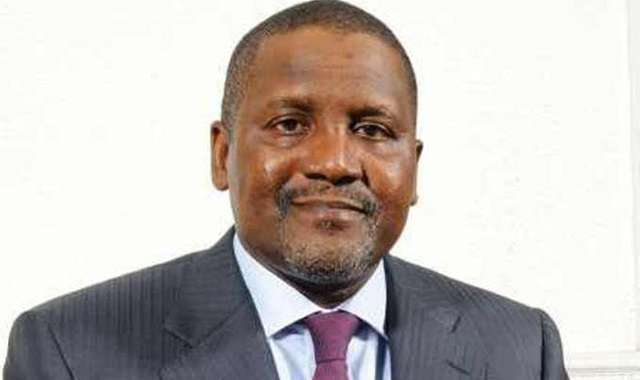Intra-African trade: Nkrumah’s dream turning to reality

Ruth Butaumocho African Agenda
“Africa’s risks are mainly perceived and not real. Unfortunately for us in Africa, we are not really very good at telling our own story. But things are changing and people are beginning to understand that things are going very, very well.”
The above poignant, but succinct quote is from one of Africa’s wealthiest man, billionaire and business magnet, Aliko Dangote in 2014, which he made at the World Economic Forum in Davos during a debate on Africa.
During the debate dubbed “Africa’s Next Billion,” a lot of renowned speakers spoke passionately about the potential and the natural resources that Africa has, which sadly were being expropriated by other countries.
Despite the divided and divergent views on what Africa needed to do to reclaim its glory, what came out clear during the debate and subsequent ones was that the continent should have one bloc — north to south — which trades freely and allows free movement of people.
Although the conversation on that particular day ended without any resolution on which trajectory Africa needed to take, the narrative on Africa had been defined.
More Africans were to join in the conversation at different platforms on the need to take ownership on trade, major business projects and other vital issues relating to the continent.
Seven years after the Davos debate, intra-African trade has become a reality following a series of brainstorming and introspection sessions by business and political leaders on the need to ring fence the continent by trading among member countries.
Such passionate conversations on the need to change the trading trajectory of Africa gave birth to the biggest trading continental market, the African Continental Free Trade Area, (AfCFTA) in 2018.
Although it was slightly delayed owing to the outbreak of Covid-19, trading activities within ACFTA have begun to take shape, with countries like Ghana reporting brisk business from various member countries.
It is also in line with the aspiration of AfCFTA, that Africa’s premier trade fair, the Intra-African Trade Fair (IATF) is receiving both political and financial support for the promotion of trade from within the continent.
Now in its second year, the Intra-African Trade Fair kicked off in Durban this week, with several Heads of States — including President Mnangagwa rallying behind the continental trade fair.
With Afreximbank extending a US$40 billion funding facility to all African countries as capital for transactions, the IATF is expected to showcase and promote vast trade and investment opportunities existing in different countries.
The facility from Afreximbank is quite huge and could turn the fortunes of Africa in a big way if it is prudently used.
The birth of the two powerful trade markets brings closer the need for intra-Africa trade.
Member countries are already optimistic that the continental markets will level the playing field and bring to the fore the potential the continent possess on trade, which many could not see because Africa had limited share trade on a number of international trading forums.
The two trading platforms should solve several challenges that have been inhibiting Africa from realising its full potential.
Some of the benefits that Africa expects to get from IATF through AfCFTA, include higher income arising from increased efficiency and productivity from improved resource allocation, higher cross-border investment flows, and technology transfers.
That development alone will bolster member country efforts in reducing poverty, unemployment and enhance food security.
From the long held wrong narrative that Africa is a hopeless continent, the continent could soon find itself neck to neck with other growing continental giants, once member states utilise the competitive advantages it has over other continents.
According to Harvard Business Review, there are already bright spots on the news on Africa; the population is projected to grow to 2 billion by 2050 and will soon have the largest workforce.
In addition, Africa has a US$2 trillion economy with about a third of its 54 countries garnering annual GDP growths of more than six percent.
Of the top 10 fastest growing economies in the world, six are in Africa and rich in natural resources, 60 percent of the world’s uncultivated arable land is in Africa.
Mobile technology, which is crucial for economic development is also slowing finding its way in the remote parts of Africa.
With its efforts in maintaining peace and security, a youthful population and abundant natural resources, there is no doubt that Africa is emerging as a new global centre of economic growth that is increasingly sought after by the world’s biggest economies.
Even the decision by China to initiate the Belt and Road Initiative (BRI) was inspired by Africa’s scale of economic impact and is clearly affirmation that the continent has what it takes to become an economic giant, once it has proper infrastructural and structural support.
When such positive developments are taking place, failure is not an option that millions across the continent would readily accept and embrace.
The exuberance and optimism being displayed at the Intra-African Trade Fair by Heads of States, investors and an avalanche of businesspeople show unity of purpose and eagerness to consolidate trade within.
Although intra-African trade may not be a panacea for development and will probably experience teething problems, it is an important development that requires the support of everyone.
Once intra-African trade is fully implemented, it can greatly assist the continent’s industries become more competitive by creating economies of scale and weeding out producers that are less productive in the marketplace.
It can establish and strengthen product value chains and facilitate the transfer of technology and knowledge via spill over effects, which what Africa needs at the moment.
Currently, several countries are exporting raw materials due to lack of proper technology to fully beneficiate them into products ready for the market.
Because of competition that intra-trade will bring among member countries, we expect a boon in infrastructure development, which will also attract and promote foreign direct investment.
Intra-trade will also boost fortunes for some of the continent’s many small, landlocked countries that face challenges such as taxes, huge transportation costs and the long period they face in receiving their goods when trading internationally.
If anything, Africa is edging closer to the dream of the late Pan Africanist Kwame Nkrumah, when he appealed to the African leaders to create strong continental unity.
Making his maiden speech on the formation of the then Organisation of African Unity (now African Union) in 1963, Nkrumah said “unity” was not just a mere word that nations could hum about, but needed to meaning to it
Nearly six decades of Nkrumah’s appeal for unity at all fronts, Africa is slowly heeding the call.
Feedback:[email protected]









Comments